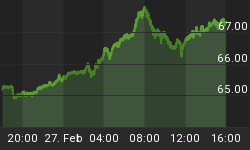While it may not be a surprise that the Republicans are preparing to yield on their vow to oppose tax hikes, it should raise investor concerns the world over that an upcoming budget agreement will likely involve a Congressional surrender of its authority to set the federal debt ceiling. In exchange for this, it appears that the Republicans have simply done nothing to halt, or even curb, the dangerous federal spending trajectories or the current drift towards greater state control of the economy. President Obama has politically outmaneuvered the Republicans, even going as far as evoking the Newtown massacre as a reason for quickly concluding a deal. As a result, it is likely that the GOP will bear the blame for any breakdown in fiscal cliff negotiations. They could wear such an outcome as a badge of honor, but nothing indicates that they have the political courage to do so.
Given the drift in Washington, those who had hoped for a significant improvement in the United States fiscal prospects will have nothing but lumps of coal in their Christmas stockings. At the same time, the Fed continues to hold its foot to the floor with increased quantitative easing that will pump massive liquidity into the system (see Peter Schiff's latest commentary for more on this). The combination can lead to stagflation and a debased U.S. dollar.
Republican House Speaker John Boehner has indicated a willingness to accept new taxes of $1 trillion, despite his party's pledge to halt tax increases. Diverting a trillion dollars out of the wealth-generating private sector into the government's coffers can only hurt corporate investment, particularly the venture capital sector that is so vital to the flow of new ideas and technology that stand at the core of America's highly profitable international technological lead.
But far more momentous than his capitulation on taxes is his agreement to pass debt limit power to the president. This decision removes any chance that the United States will ever do anything meaningful to address its fiscal imbalances.
Following the establishment of the Federal Reserve, the House of Representatives' approval of the Federal debt limit was needed to restrict a profligate government from endangering the credit of the United States and encumbering future generations with an unbearable level of debt service. But in order to pander to voters, both Republicans and Democrats have paid little heed to this important duty and have rubber-stamped continued increases in debt. In recent years, when Federal debt began exceeding GDP, Republicans finally withheld the stamp in order to force a real budget discussion. But a combination of their own hypocrisy and political mishandling has rendered those attempts futile.
In the meantime, both parties have avoided making any meaningful cuts in government spending and have instead offered accounting gimmickry as a poor substitute. Neither party appears willing to risk votes in order to curb the profligate and economically suicidal growth in out of control entitlement expenditures.
Last week, The Economist magazine published a list of 80 countries, ranked in order of quality of life as determined by such elements as economic well-being, intrusive government and crime. The United States has now fallen to sixteenth position (with Switzerland in first position). The combination of $1 trillion of new taxes and the likelihood of increased financial and commercial regulation will likely push the U.S. further down the list.
It is time for politicians, and particularly Republicans, to put the nation before their individual careers. Should they fail in this great patriotic call, they will be sentencing their fellow Americans to a future of falling living standards, currency decline and poverty.
But while the US struggles with its political and economic morass, other regions of the world do present more promising opportunities for investors. Due out early next month, Euro Pacific's Global Investor Newsletter will feature a wrap-up of global markets in 2012 and a preview of 2013. Subscribe for free today.
Subscribe to Euro Pacific's Weekly Digest: Receive all commentaries by Peter Schiff, John Browne, and other Euro Pacific commentators delivered to your inbox every Monday!
Order a copy of Peter Schiff's new book, The Real Crash: America's Coming Bankruptcy - How to Save Yourself and Your Country, and save yourself 35%!















